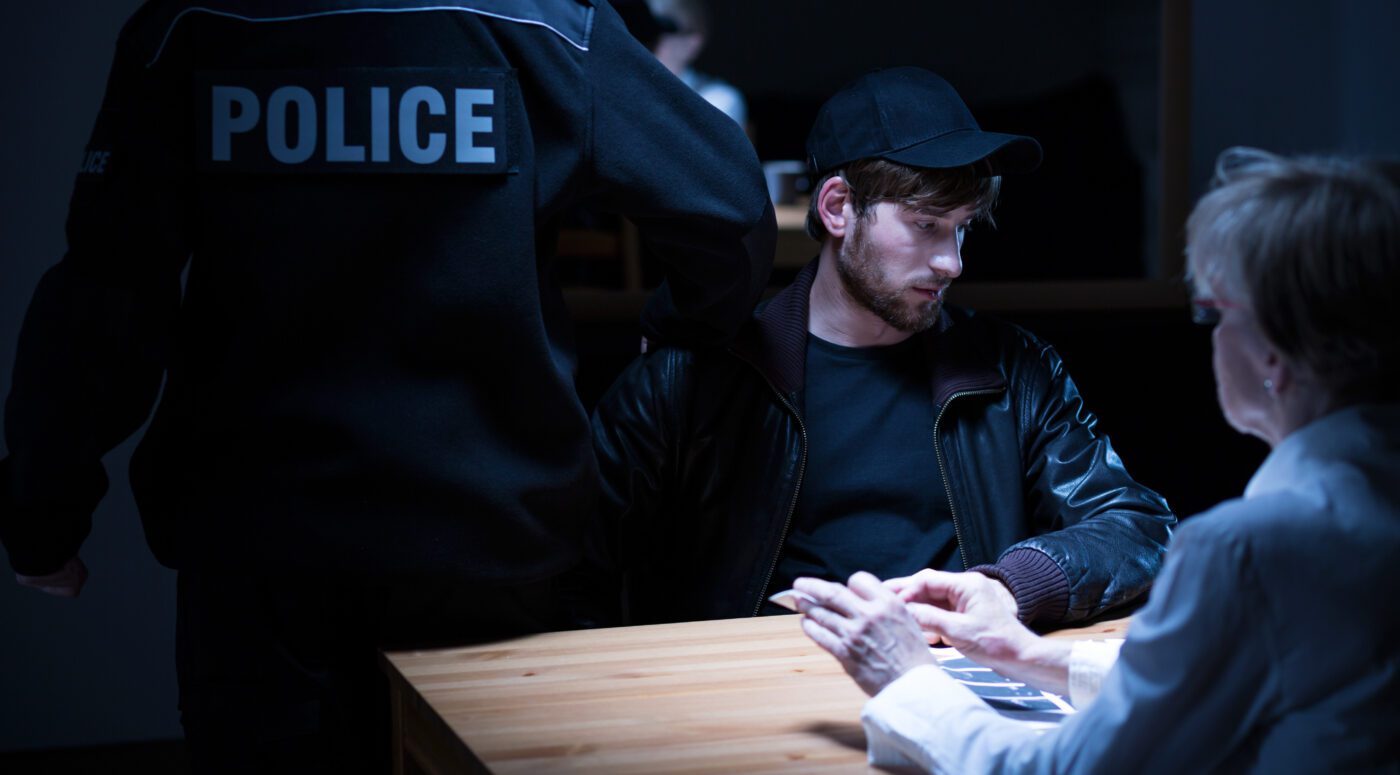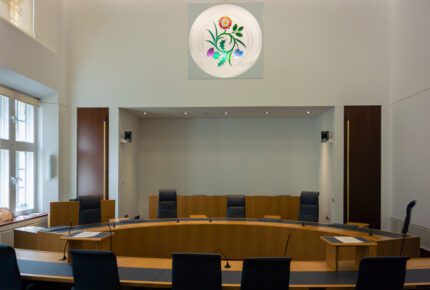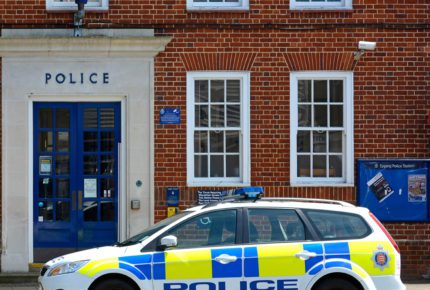

Hearing the word ‘slavery’ invokes memories of history lessons and museums for many, but this practice is still a major concern today. Modern slavery, along with the related activities of human trafficking and smuggling, are among some of the greatest human rights concerns in the UK. In England and Wales, there are specific criminal offences that deal with modern slavery. For the most part, they are contained in the 2015 Modern Slavery Act. As expected, consequences of being found in contravention of these laws are severe. If you have been charged with a modern slavery offence, no doubt you are concerned about what might happen next. In this article, we look at the Modern Slavery Act in more detail as well as outline the offence, sentences, and possible defences for modern slavery offences.
What is modern slavery?
If when you think of slavery, you think of forced labour, debt servitude, and smuggling, you are on the right lines when it comes to the activities that fall under the definition of modern slavery. Under the Modern Slavery Act, the word ‘slavery’ is given its ordinary meaning. A person commits an offence of slavery, servitude and forced or compulsory labour (a ‘Section 1’ offence) if they:
- hold another person in slavery or servitude and the circumstances are such that the person knows or ought to know that the other person is held in slavery or servitude, or
- require another person to perform forced or compulsory labour and the circumstances are such that the person knows or ought to know that the other person is being required to perform forced or compulsory labour.
In other words, the offence is straightforward: if you know you are holding someone in slavery or servitude, or if you force them to perform compulsory labour, you are guilty of an offence under this piece of legislation.
Examples of the types of modern slavery include:
- Bringing someone to the UK for work, only to take their passports and require they work off their ‘debt’ to you in order to get it back
- Keeping someone trapped in your house to perform domestic duties without payment
- Threatening to kill or hurt someone if they don’t work for you for free (this would attract other criminal sanctions, too, such as an assault charge)
- Holding someone prisoner in your house as a sex slave
- Forcing someone to stay in a job they no longer want to pay off your ‘investment’ in training or hiring them
- Recruiting someone into a gang to perform criminal acts on your behalf (again, this may attract other criminal sanctions related to gang crimes)
What is the difference between human trafficking and modern slavery?
The Modern Slavery Act 2015 consolidated many of the prior offences related to slavery and trafficking. Slavery is dealt with under Section 1 of the Act, as outlined above, and trafficking now is dealt with primarily under Section 2. So called, ‘Section 2’ offences relate to arranging or facilitating the travel of another person with a view to exploitation.
The human trafficking offence is slightly more complicated, but it has the following general requirements:
- An offence is committed if the person arranges or facilitates the travel of another person (the ‘victim’) with a view to the victim being exploited (i.e. intending to exploit the victim themselves, or knowing that the victim will be exploited by someone else)
It is irrelevant whether the victim is an adult or a child, and it is also irrelevant whether the victim consents to the travel. This explains why it is possible for traffickers to be charged even though the victim came willingly to the UK. In this case, ‘travel’ requires arriving in, entering, departing from, or travelling within any country, and the victim does not have to be from within the UK for there to be an offence in England and Wales.
If the alleged perpetrator is a UK national, it does not matter whether the offence was committed in the UK or elsewhere. If the alleged perpetrator is not a UK national, the offence must have been arranged, facilitated, or committed by arrival into, entry into, departure from, or travel within, the UK.
Who are the victims of human trafficking?
The victims of human trafficking are many and various. All age groups, nationalities, races, economic statuses, genders, sexual orientations, and other characteristics are harmed by trafficking.
Various forms of human trafficking have different typical victim sets (though one should be careful with generalisations here):
- Child slavery. Evidently, this type of human trafficking involves children as the main victims. Children are kidnapped or lured away from their families/carers, often on the promise of a better life elsewhere. When they arrive in their destination, they are often put into slavery or servitude of some kind, including sex trade activities. There were over 5,000 referred cases of child slavery in the UK for the year ending December 2021 (in reality, this number will be much higher).
- Sex trade. In the sex trade, there are again victims of all different characteristics. Recent years have seen an increase in individuals being trafficked from Eastern Europe, but with referrals of potential victims at an all-time high, it is likely that many more locations are involved.
- Domestic slavery. Again, victims of al characteristics can be brought into domestic slavery, but typically the victims are women and non-English speaking. Statistics on those in domestic slavery are hard to come by, but of the estimated 136,000 people experiencing slavery in the UK today, a considerable percentage will be forced into labour in the domestic sector.
- Debt bondage. Generally speaking, victims of debt bondage are male, able-bodied, young men who are forced to work in agriculture, construction, or service industries (like car washes) where there is little or no interaction with the general public. Many such individuals have their passports stolen from them; being told they must work for a set period of time to ‘earn’ them back.
- Drug gangs. As with other types of modern slavery, there is no set profile for a victim of drug gang related slavery. That said, noticeably the victims are male, younger, and some are even children. Young children are often trafficked into gangs on the promise of ‘doing something cool’ or ‘not upsetting the older kids’, and later forced into running deliveries, stealing cars, and other forms of crime.
What is the sentence for modern slavery?
Offences under the Modern Slavery Act 2015 are ‘either way’ offences, meaning they can be tried in the Magistrates’ Court in less serious cases, and the Crown Court for more serious ones.
If found guilty of a Section 1 or Section 2 offence as described above, the Magistrates’ Court may hand down a sentence of up to 12 months’ imprisonment, or a fine, or both. The Crown Court, much more severely, may sentence a person to imprisonment for life.
These are very serious sentences in either case, and a conviction for a modern slavery offence can have devastating consequences on a person’s ability to enjoy a normal personal and professional life.
What are the possible defences for modern slavery?
There are no specific defences available to the alleged perpetrators of modern slavery offences, unless they themselves are the victims of modern slavery.
If a victim of modern slavery commits an offence outlined in the Modern Slavery Act 2015, they may be able to rely on the Section 45 defence.
The Section 45 defence requires that:
- the person seeking to rely on the defence is aged 18 or over at the time of the alleged offence;
- the person did that act because they were compelled to do so;
- the compulsion was related to being in slavery or otherwise exploited; and that
- a reasonable person in the same situation would also have done that act, seeing no alternative but to do it.
Note that the law recognises that a person may be compelled to do something by another person or by the person’s circumstances. For example, a person may be compelled to comply with demands to assist in the commission of a modern slavery offence if their family is desperate for money and this is the only way they can earn some. There will, of course, be a high evidentiary standard to make this defence successful.
This defence exists to protect those that are forced into modern slavery and have no option but to commit these types of offences, for fear of retaliation, violence, or even death if they do not comply.
How to get more help with modern slavery offences?
If you or someone you care about has been charged with an offence relating to modern slavery, you are understandably worried about what happens next. Modern slavery offences carry with them a stigma like few other offences, so it is imperative you find a non-judgmental and experienced criminal defence solicitor who deeply understands the trial process. For more information about modern slavery offences and what might happen if you have been charged with one, contact the experts at Stuart Miller Solicitors today.
OUR COMMITMENTS TO YOU:
-
Responsive
A legal expert will consult you within 24 hours of making an enquiry.
-
Empathetic
We will always treat you with trust, understanding and respect.
-
Specialised
Your case will be handled by an expert who specialises in your type of offence.
-
Proactive
We will take early action to end proceedings as soon as it is practically and legally possible to do so.
-
Engaged
You will be kept updated on your case at all times. We will provide a named contact available to answer your questions.
-
Caring
We understand this is a difficult and stressful time for you and your family. Our team will support you every step of the way.
-
Tenacious
We will never give up on your case. We fight tirelessly to get you the best possible outcome.

